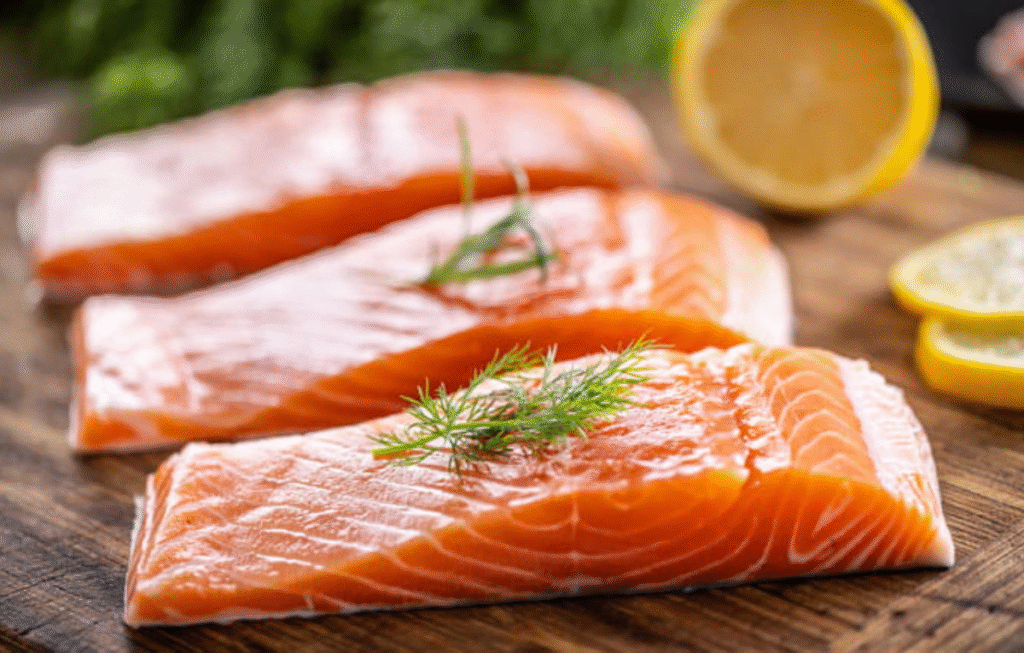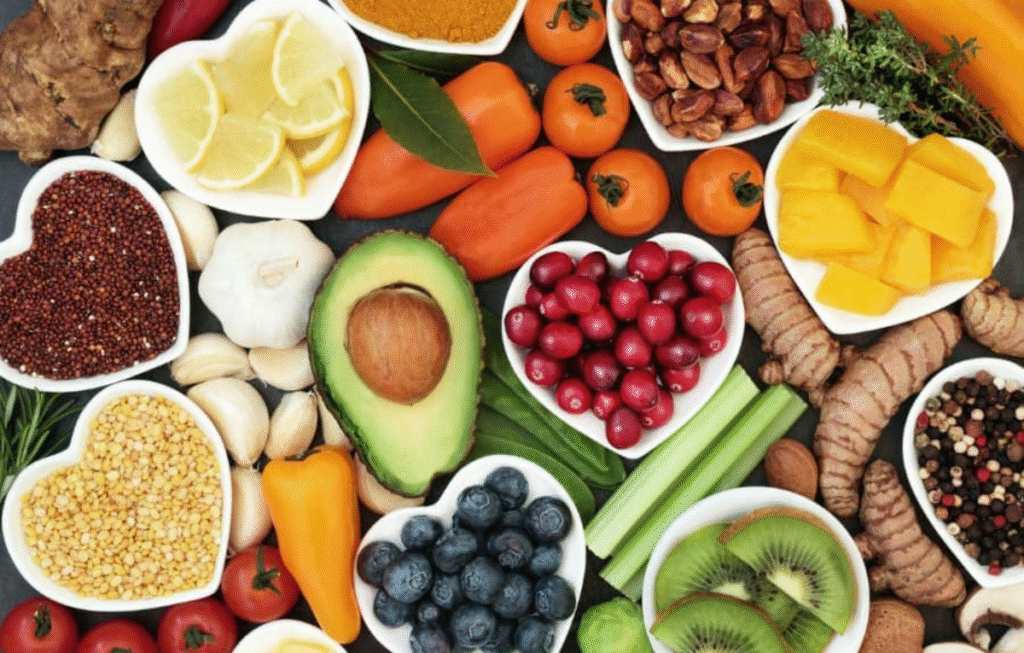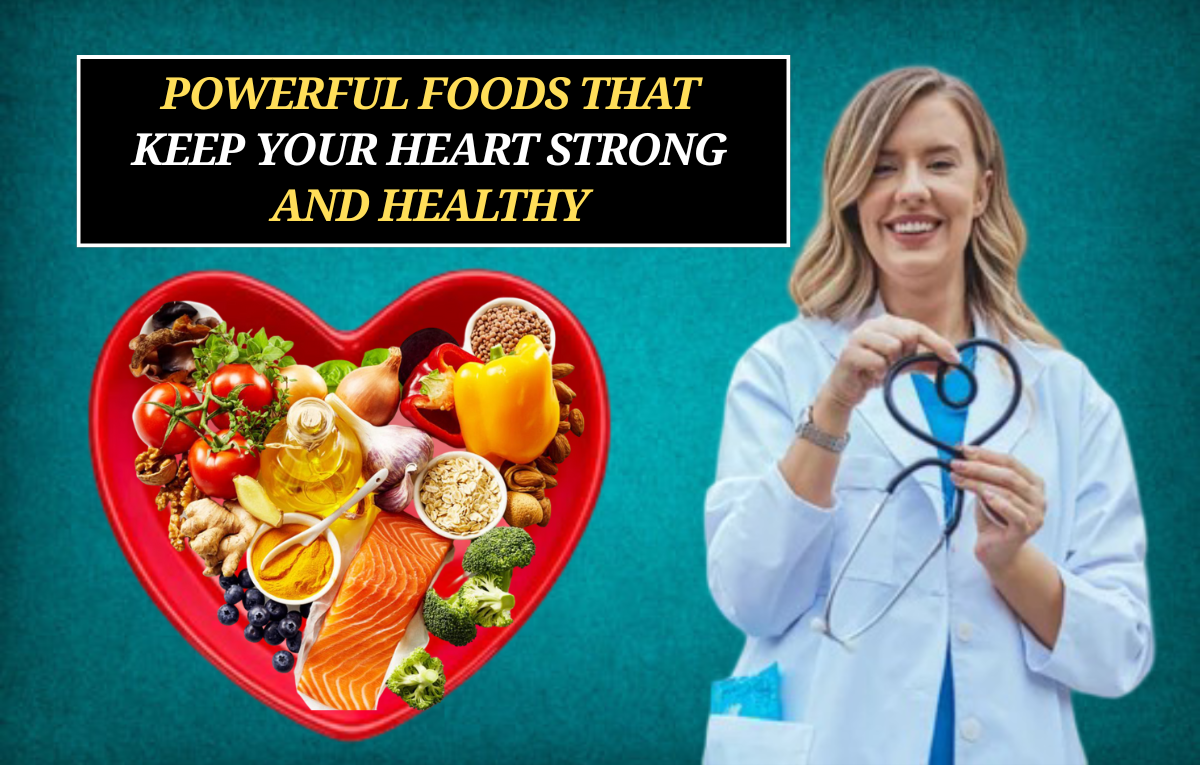8 Healthy Foods That Make Your Heart Strong and Healthy
We all know that the most important part of our body is the heart. The heart is that small-sized pump that provides blood and oxygen to every vein and cell of our body, 24 hours a day and never stops. If the heart stops, even for a second, the body stops. This is why it is very important for us to take care of our heart.
The daily life of the bustling world, stress, late nights, packaging food or processing food, and not working out regularly all these things makes the heart weak over a period. This is exactly the reason that heart diseases have become the world’s greatest issue. However, the best part is that our heart can be strengthen by changing the way of our lifestyle and food habits.
If we adopt the right food and beverage in our routine life not only will we strengthen the heart, it will also boost blood flow, lower bad cholesterol, and avoid extreme diseases like heart attack and stroke.
1. Fatty fish – the best source of omega-3
If a list of best foods for the heart is created, then fatty fish should be first. This includes fish such as salmon, mackerel, sardines, and tuna.

Why is it beneficial?
- These fishes are high in omega-3 fatty acids, which help decrease inflammation in the body.
- They decrease bad cholesterol levels (LDL) whilst decreasing triglycerides and also increase good cholesterol (HDL).
- A study found that people who eat fish 2-3 times a week are at less of a risk for heart attack and heart disease.
How to eat?
- Eat grilled or baked fish twice a week. You can squeeze lemon over top and add garlic and herbs if you want to take it up a notch.
- You can mix tuna with the salad for a nice wholesome lunch.
- If not a fish eater, flax seeds, chia seeds, and walnuts are also great options for omega-3.
Small Tip: Don’t deep-fry your fish. Fried fish contains trans fats, which are terrible for the heart.
2. Berries – Rich in Antioxidants
If you are looking for nutrition, strawberries, blueberries, raspberries, and blackberries are not only delicious options but also powerhouses of nutrition.
Why is it beneficial?
- Berries are full of antioxidants specifically anthocyanins which protect the health of our neurons and blood pressure regulation.
- Berries are also full of fiber, which keeps cholesterol in check.
- Research shows that eating berries daily can lower your risk of heart disease.
How to eat?
- Try them with the oats or yogurt for breakfast.
- You can even add them to a smoothie for a nutritious and delicious drink.
- You can even use frozen berries out of season (they have similar nutritional value).
Small Tip: A dessert of dark chocolate with berries is a super delicious and heart-healthy dessert.
3. Nuts – Small kernels, big benefits
Almonds, walnuts, pistachios, and cashews all heart-healthy.

Why is it beneficial?
- Nuts are full of healthy fats, protein, magnesium, vitamin E, and fibber.
- Walnuts provide ALA (alpha-linolenic acid), a plant omega-3.
- Eating a handful of nuts a day can increase cholesterol and reduce the risk of heart attack.
How to eat?
- Eat a handful of raw, or lightly roasted nuts for a morning or evening snack.
- Sprinkle chopped almonds or pistachios on salads and yogurt.
- Add walnuts to your homemade granola or desserts.
Small Tip: Avoid those high salt and high sugar coated nuts which are high in unhealthy fats and sugar.
4. Green leafy vegetables – a true friend of the heart
Spinach, kale, lettuce, and fenugreek are extremely essential to maintain the health of the heart.
Why is it beneficial?
- They contain lots of vitamins A, C, and K, folate, and calcium.
- The nitrates in them dilate the blood vessels, ensuring proper blood flow.
- Antioxidants lower inflammation and blood pressure in the body.
How to eat?
- Include spinach in an omelet or smoothie for breakfast.
- Use spinach or lettuce as the base of the salad.
- Prepare a healthy side dish by cooking spinach and garlic in olive oil over low heat.
Small Tip: Consume green leafy vegetables along with healthy fat like olive oil so that the vitamins contained in them are better absorbed.
5. Whole grains – a treasure trove of fiber
Whole grains are always preferable to refined (white) rice and flour.

Why is it beneficial?
- They have fiber, which lowers bad cholesterol (LDL).
- Regulates blood sugar level, lowering the risk of diabetes.
- Based on studies, individuals who consume whole grains every day are less likely to suffer from stroke and heart attack.
Which whole grains should you eat?
- Oats, brown rice, quinoa, barley, and whole wheat.
How to eat?
- Replace white rice with brown rice or quinoa.
- Have oat porridge for breakfast and eat it with fruits and nuts sprinkled over it.
- Replace white bread with 100% whole wheat bread.
Small Tip: “Multigrain” is not necessarily whole grain. Only purchase what has “100% whole grain” written on the packet.
6. Olive oil – a true friend of the heart
Olive oil, especially extra virgin olive oil, is very good at protecting the heart.
Why is it beneficial?
- It is high in mono-unsaturated fat, which reduces bad cholesterol (LDL) and increases good cholesterol (HDL).
- Antioxidants; polyphenols reduce inflammation.
- Improves blood circulation and keeps veins supple.
How to eat?
- Use olive oil for salad dressings.
- Drizzle on steamed vegetables/rice or whole wheat pasta.
- Use it for light cooking instead of butter.
Small Tip: Keep olive oil in a dark/cool place; otherwise it will lose its effect.
7. Pulses and Beans – Cheap and Healthy
Rajma, chana, masoor, tur, and mater all these, if not strong tasting, definitely strengthen the heart.

Why is it beneficial?
- They have plant protein, fiber, and have some minerals such as potassium and magnesium.
- Regulate blood sugar and cholesterol levels.
- According to research, daily consumption of pulses and beans, reduces the prevalence of obesity and blood pressure.
How to eat?
- Roast peas chickpeas etc. – eat as a healthy snack.
- Make lentil soup and have for dinner.
- Chop and toss kidney beans and black chickpeas into salads and wraps.
Small Tip: Soak beans overnight and boil them; this will help them digest easily and cook quickly.
8. Dark Chocolate – Sweet and Healthy
Yes, chocolate is not only sweet, but it can also be healthy if you consume dark chocolate.
Why is it beneficial?
- It has flavonoids, which are antioxidants and lower blood pressure.
- Reduces stress, which lightens the load on the heart.
- Makes blood vessels elastic and increases blood flow.
How to eat?
- Take dark chocolate with a minimum of 70% cocoa.
- Consume 1–2 small pieces a day.
- Grate into smoothies or oats.
Small Tip: Chocolate or milk with a lot of sugar is rich in sugar and is bad for the heart.
Additional suggestions to keep your heart happy

- Less salt—too much salt increases blood pressure.
- Less sugar—sugary foods create even more stress to the heart.
- Eat in balance—protein, carbohydrates, and good fats are all necessary.
- Drink plenty of water—dehydration affects your blood flow.
- Control for portions—overeating is also a strain on the heart.
Example One-Day Heart-Healthy Meal Plan
- Low sodium – salt increases blood pressure.
- Less sweets – sugar is a bigger stressor on the heart.
- Eat a healthy diet – good fats, protein, and carbohydrates are all required.
- Drink plenty of water – dehydration influences blood flow.
- Be cautious of portion sizes – over-eating creates stress on the heart.
A sample one-day Heart Healthy meal plan:
- Breakfast – Oat porridge + berries + chia seeds + a drizzle of honey
- Mid-morning snack – Walnuts and one square of dark chocolate
- Lunch – Grilled salmon + quinoa + spinach
- Evening snack – Roasted chickpeas + green tea
- Dinner – Lentil soup + whole grain bread + salad (dressed with olive oil)
Conclusion
The heart is the actual powerhouse of our existence. If you wish it to remain strong and healthy for many years to come, ensure that you incorporate fatty fish, berries, nuts, green leafy vegetables, whole grains, olive oil, pulses, and dark chocolate into your daily diet.
Remember, there is no need to make a big change at once. Small healthy habits, like choosing grilled food over fried, brown rice over white rice, or eating a handful of nuts every day all these together can protect your heart for a lifetime.
FAQs:-
Which foods are best for heart health?
Foods like oats, fatty fish, berries, nuts, leafy greens, whole grains, legumes, and olive oil are excellent for heart health.
Why is olive oil considered heart-friendly?
Olive oil is full of monounsaturated fats that lower bad cholesterol and support artery health.
Can eating nuts daily improve heart health?
Yes, a handful of unsalted almonds or walnuts daily can lower cholesterol and improve circulation.

